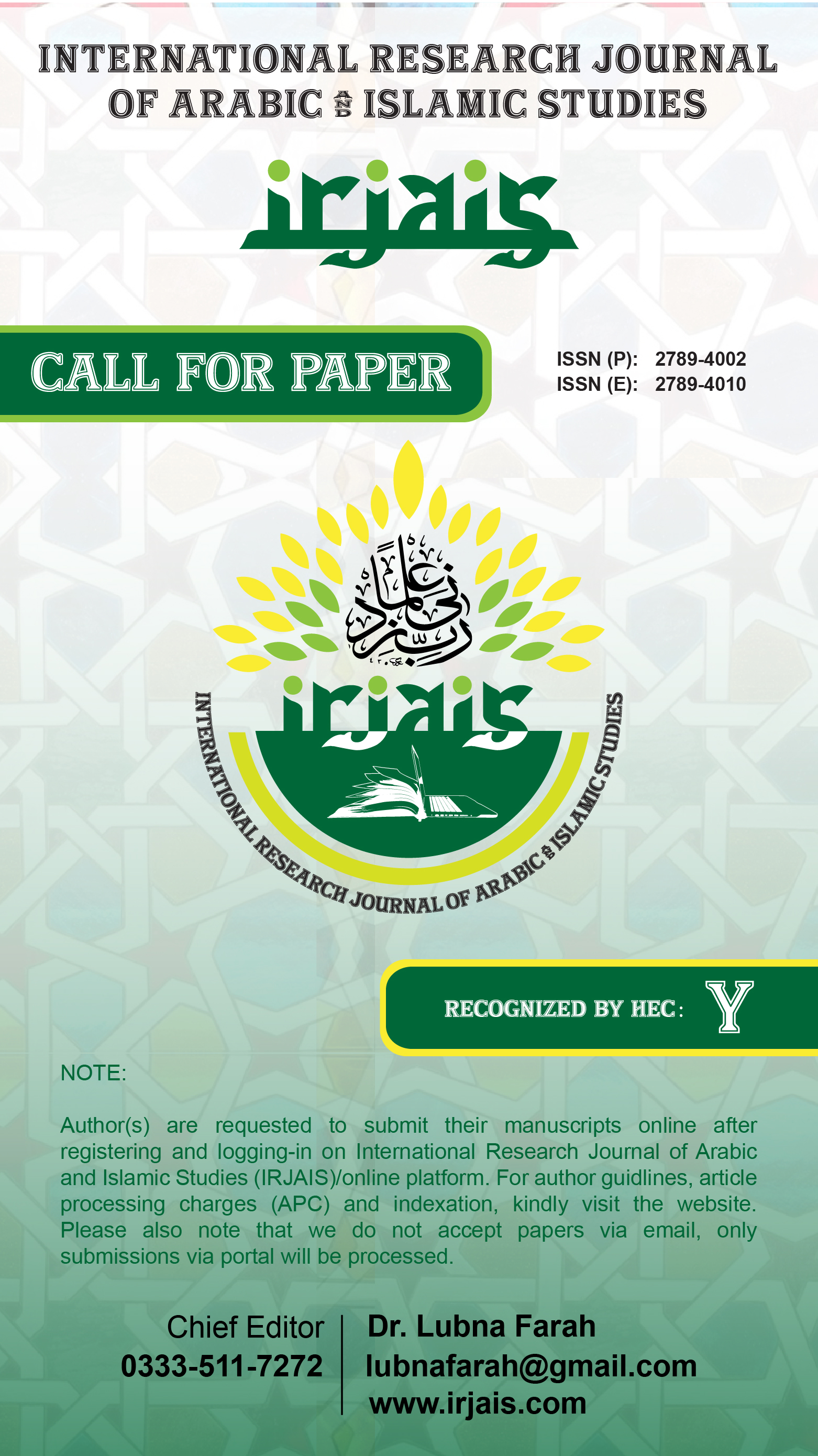اختلاف قرآت قرآنیہ اور مستشرقین کے اعتراضات : ایک تحقیقی مطالعہ
Differences in Quranic Recitations and Orientalist Objections: A Research Study
Keywords:
recitations of the Quran, Orientalist, Quranic text, objections.Abstract
The claim by certain Orientalists suggests that the Quran underwent developmental stages in its formative years during the first two centuries, implying that due to incompleteness during the era of Prophet Muhammad (peace be upon him) and the era of the Companions (may Allah be pleased with them), it was susceptible to alterations and discrepancies. Their stance is supported by several arguments:
- 1. Challenges in Islamic Sources: They argue that sources from Islamic history do not consistently meet modern research standards, thus rendering their verification difficult.
- 2. Archaeological Findings in Arabia: Discoveries during archaeological excavations in peripheral regions of the Arabian Peninsula indicate ancient inscriptions and writings that clarify the Quran did not exist in its current form in the first century Hijri.
- 3. Ancient Quranic Manuscripts: Ancient Quranic manuscripts unearthed near Sana'a, Yemen, indicate a long evolution of the Quranic text with variations and alterations over time.
- 4. Textual Criticism: Through textual criticism and analysis of Quranic manuscripts, discrepancies and errors in the writing and compilation of the Quran have been identified.
These assertions have made the study of Quranic recitations (Qira'at) a focal point for Orientalist research, as it directly relates to the Quranic text. Should doubts and uncertainties arise in this area, it could potentially undermine the confidence of Muslims in the authenticity of the Quran itself. These abstract addresses these issues in light of the article "Differences in Quranic Recitations (Qira'at) and Orientalist Objections: A Research Study," providing a comprehensive response to the objections raised by Orientalists regarding the various recitations of the Quran.





